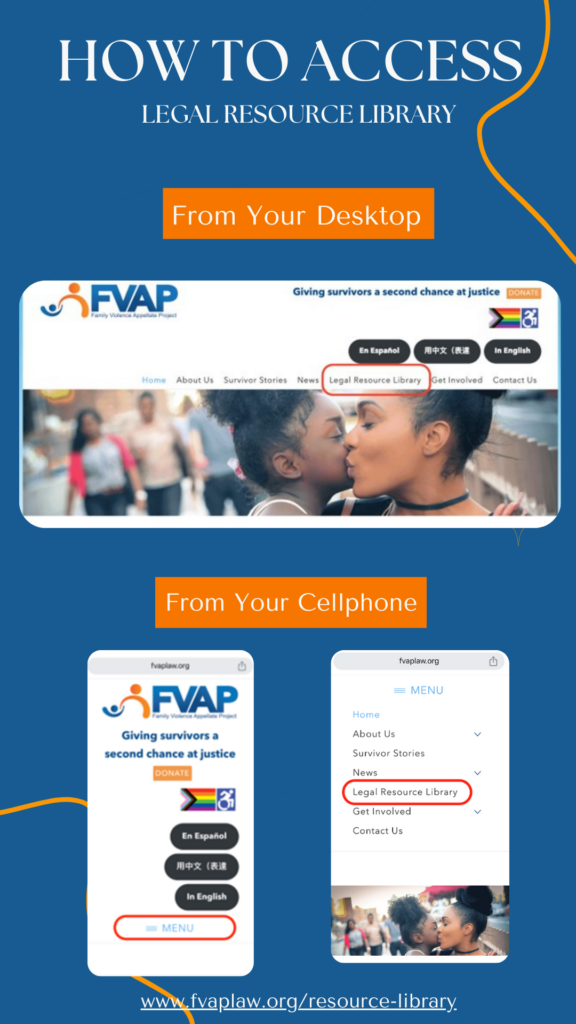Los Angeles Superior Court removes roadblock for survivors of abuse to access justice by allowing electronic reporting in certain situations
“NO RECORD, NO JUSTICE”
- LA Superior Court Chief Judge, Samantha Jessner announcing a General Order permitting electronic recording where justice demands!
Oakland, CA (September 5, 2024) The Family Violence Appellate Project applauds the leadership of the Los Angeles Superior Court in addressing the access to justice crisis that exists because low and moderate income litigants have no legislatively approved method for obtaining a record of what happened at their hearings. The fact that 1500 hearings every day – just in Los Angeles County – go without any record of what happened is untenable. FVAP and the Legal Aid Association of California sponsored SB 662, a common sense approach to this crisis that would have protected and preserved court reporter jobs while also opening the path to justice to civil litigants. Despite Senator Susan Rubio’s heroic efforts to advance the bill and the full throated support of California’s legal aid and domestic violence communities, the bill was defeated. This necessary step will staunch the flow of injustice for thousands of survivors of domestic violence, elder abuse, human trafficking, and other forms of abuse in Los Angeles County.
This is a real crisis, not just in LA but throughout the state. The Judicial Council of California tracks the number of hearings that go without a court reporter statewide. Between October 1, 2023 and March 31, 2024, of 664,700 reported family, probate, and unlimited civil hearings in California, an estimated 483,500 hearings had no verbatim record (72.7%).
Despite robust efforts to recruit, retain and hire court reporters, the demand cannot be fulfilled. Although courts are paying upwards of $150,000 in salary plus generous benefits, signing bonuses as high as $50,000, retention bonuses in the 5 figures each year, and are even paying other staff to attend court reporter school, more court reporters leave court employment each year than join it. Courts have to compete with the private sector, where certified court reporters are also statutorily required to take depositions. Private sector jobs offer even higher pay with more flexibility – and even in the private sector there is more demand than can be met. One estimate is that 10 hours of depositions are taken for every 1 hour of testimony in court.
The result is often devastating for the survivors FVAP serves every day. Survivors of domestic violence rely on courts for critical orders to protect them and their families, including restraining orders, child custody and visitation orders, spousal and child support orders, orders declaring debt was caused by domestic abuse, and many others. Under current law, although the Legislature has said that “[f]amily law touches the most central aspects of Californians’ lives” and “can have a dramatic and lasting impact on people’s lives” (Stats. 2009, ch. 352 (Assem. Bill No. 939), § 1, subd. (a)), court reporters are not required to be at any of these hearings.
However, a record of what happens at these hearings is necessary to have orders enforced by law enforcement and the courts, to challenge wrong or dangerous orders, and because these cases often last years in the courts. Electronic recording works and we already use it in evictions, small claims, criminal misdemeanors, and infractions cases. The technology is there now and justice demands we use it.
As but one example of what this crisis looks like, recently a survivor came to us asking for help with two orders—one denying her request for a domestic violence restraining order, and one granting her and her abuser joint custody of their children. The survivor told us the family law judge did not fully review her evidence or hear from her during the hearing, did not let her testify about the abuser threatening her process server, and did not let her support person sit with her during the hearing (as required by Family Code section 6303). These errors by the trial court could be enough on appeal to reverse and get a restraining order for the survivor—and if she got a restraining order, the custody order would have to be different because of the presumption in Family Code section 3044.
But the only record of what happened at this survivor’s hearing was a short Minute Order, which simply indicated that the parties were sworn and heard by the court, and the court denied the restraining order request—and then granted joint custody of the children, which is not unusual when no abuse has been found. As is common for Minute Orders in family law cases, no further detail was provided: none on what the parties said, what evidence they tried to present, or the court’s reasons for any of the decisions it made.
Although FVAP did not start tracking how many appeals we decline because no court reporter was present until very recently, we know of at least 30 survivors whose appeals we could not take between April 2023 and April 2024 merely because there was no court reporter present at their hearing. These survivors came to us from every corner of the state seeking to overturn court decisions that put them and their children at risk of harm and we could not help them.
FVAP applauds the efforts of the Los Angeles Superior Court to address this crisis and provide true access to justice!
##
Media Contacts
Thao Weldy, tweldy@fvaplaw.org (510) 858-7358, Development Director, Family Violence Appellate Project
Jennafer Wagner, jwagner@fvaplaw.org (510) 858-7358, Director of Programs – California, Family Violence Appellate Project
FVAP Receives its First-Ever Grant to...
Increase Access to Appellate Justice for Domestic Violence Survivors in Washington State
Seattle, WA (April 18, 2024) The Family Violence Appellate Project (FVAP) is pleased to announce the receipt of its first-ever grant in the state of Washington. This grant of $249,770 from the Washington State Department of Commerce will be used to address the critical need for improved access to the legal system, particularly for domestic violence survivors seeking justice through the appellate process. In Washington, only a small percentage of appeals are successful, with even a smaller fraction representing the interests of domestic violence survivors. Moreover, the short timeframe of 30 days for filing appeals, combined with the complexity of the process, presents significant hurdles for individuals navigating the legal system.
FVAP’s project, “Increasing Equitable Access to Appellate Legal System for Survivors of Domestic Violence and Other Unrepresented Marginalized Litigants,” seeks to enhance access to legal remedies for those unable to afford representation. Through this initiative, FVAP will collect valuable data on the challenges faced by individuals attempting to exercise their right to appeal. This data will be anonymized, aggregated, and shared with stakeholders to advocate for systemic changes that promote fairness and equality in the legal system.
This project is part of a multi-year partnership with the Equitable Access to Appellate Courts workgroup. The funding received will enable FVAP to provide immediate assistance to domestic violence survivors while also laying the groundwork for broader systemic reforms. A comprehensive report detailing the project’s findings will be presented to the funder and the State Legislature later this year, with the shared objective of creating a more just and accessible legal system in Washington State.
FVAP will build upon a 2022 concept paper, written by the Access to Justice Board to the Supreme Court, to develop solutions tailored to the specific challenges faced by Washington appellate courts. The significant demand for such initiatives is evident, with an average of nearly 30,000 protection orders filed in civil courts across Washington state each year. Flawed decisions in trial courts exacerbate the trauma experienced by domestic violence survivors, underscoring the urgency of effective appellate processes.
Despite the right to appeal, many individuals lack access to legal representation due to financial constraints. Furthermore, navigating the appellate process can be daunting, particularly for marginalized communities. FVAP’s project aims to bridge this gap by providing resources, technical assistance, and free representation to ensure equitable access to the appellate system.
“FVAP’s services are crucial for ensuring that all survivors have access to justice and can find safety and healing through the legal system” says Deborah Son, Executive Director of FVAP. “I am very pleased to accept this grant award, which comes at a time when we and other survivor-serving organizations nationwide are facing funding cuts from the federal government. I hope this is just the first of many grants to further FVAP’s work in Washington.”
Media Contact
Thao Weldy, Development Director, Family Violence Appellate Project, tweldy@fvaplaw.org, (510) 858-7358
New & Improved Legal Resource Library
FVAP is excited to announce the launch of its new, improved, Legal Resource Library! This revamped resource library offers thousands of legal documents through easy-to-sort categories and a search option that improves user access to helpful toolkits, samples, writs, opinions, trainings, and articles.
Access to the Legal Resource Library is free and available 24/7 at https://fvaplaw.org/resource-library/ . Alternatively, navigate to “Legal Resource Library” in the Menu at the top of any page on the FVAP website.
As the only nonprofit organization in California and Washington dedicated to providing free appellate representation to survivors of domestic violence and other forms of intimate partner, family, and gender-based abuse, FVAP recognizes the importance of providing robust access to critical information for those escaping violence at any time, anywhere. We hope this library serves your needs today.
A special THANK YOU to: Amanda Case, Monica Katz LaBoskey, our website developer Giant Rabbit, and our content reviewers for overseeing the 18+ month project and ensuring its success. We also thank the California Access to Justice Infrastructure and Innovation Grant Program for its support of this project.
Help us continue to provide this free resource by making a donation at www.fvaplaw.org/donate. Your donation will enable FVAP to add new resources to its Legal Resource Library, keep existing resources up-to-date, and improve access to justice and information to survivors.
Media Coverage
Daily Journal names FVAP as one of California’s Top Boutique Law Firms of 2023!
by FVAP
The Daily Journal honors California firms with a large portfolio of complex and impactful matters, and which focus at least 90% of their resources on a single specialty. FVAP was recognized for our appellate litigation expertise in family law for domestic violence survivors.
We were one of only 20 firms throughout the state listed as a Top Boutique Law Firm for 2023! Read FVAP’s Feature Here (subscription required).
Farewell Erin!
by FVAP
TO OUR WONDERFUL FVAP COMMUNITY
To celebrate and honor Erin Smith’s incredible 11 years as the Co-founder and Executive Director of FVAP (Family Violence Appellate Project) and her upcoming departure from FVAP, we would like to share a sampling of the beautiful messages from the Board members, Staff, and FVAP supporters. If you would like to share your own messages with Erin, you may do so by adding them to the Kudoboard here or send an email to erin@fvaplaw.org. Erin, we wish you well in your future endeavors. Thank you for everything you have done for the organization and the survivors of family violence; you and your dedication will not be forgotten!
Introducing FVAP’s New Executive Director, Deborah Son
by FVAP
Daily Journal Names FVAP Executive Director Top Family Law Lawyer
by FVAP
FVAP Article Opposing Coercive Control Bill Published in the Daily Journal
by FVAP
We’re excited to announce “‘Coercive control’ domestic violence bill: well-intentioned, but need to be reworked” written by FVAP’s Legal Director, Nancy K.D. Lemon, and FVAP Staff Attorney, Cory Hernandez, advocating that Senate Bill 1141 not be passed was published in the Daily Journal yesterday. Unfortunately, the Bill introduces new barriers that will make it harder for many survivors to protect themselves. Our hope is that the Bill does not become law unless it is substantially amended to address its current issues.
FVAP Article on Secretly Recorded Evidence Gets Published
by FVAP
The California Association of Certified Family Law Specialists just published an article written by FVAP Senior Managing Attorney, Shuray Ghorishi, and the Honorable Judge Mark Juhas in their journal! The article, California Penal Code 632: The Dilemma of Secretly Recorded Evidence in Family Law and Abuse Cases, explores the nuances of recorded communications in family court cases, including when a recording can and cannot be introduced into evidence.



